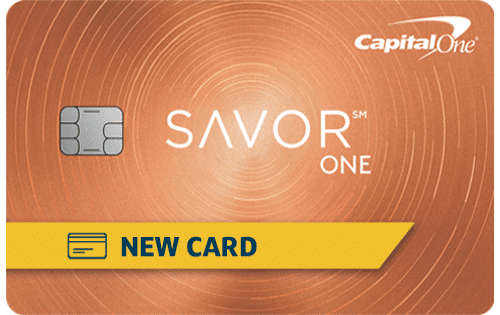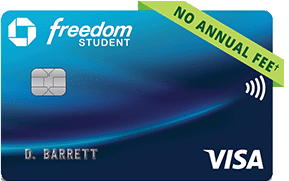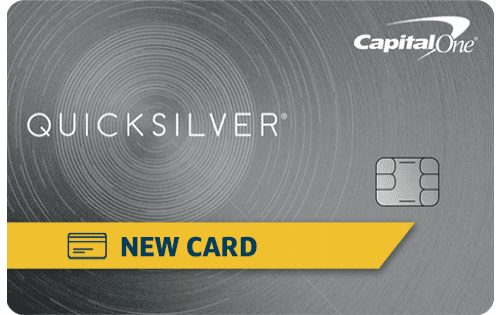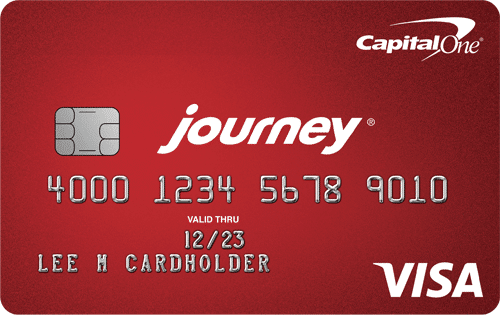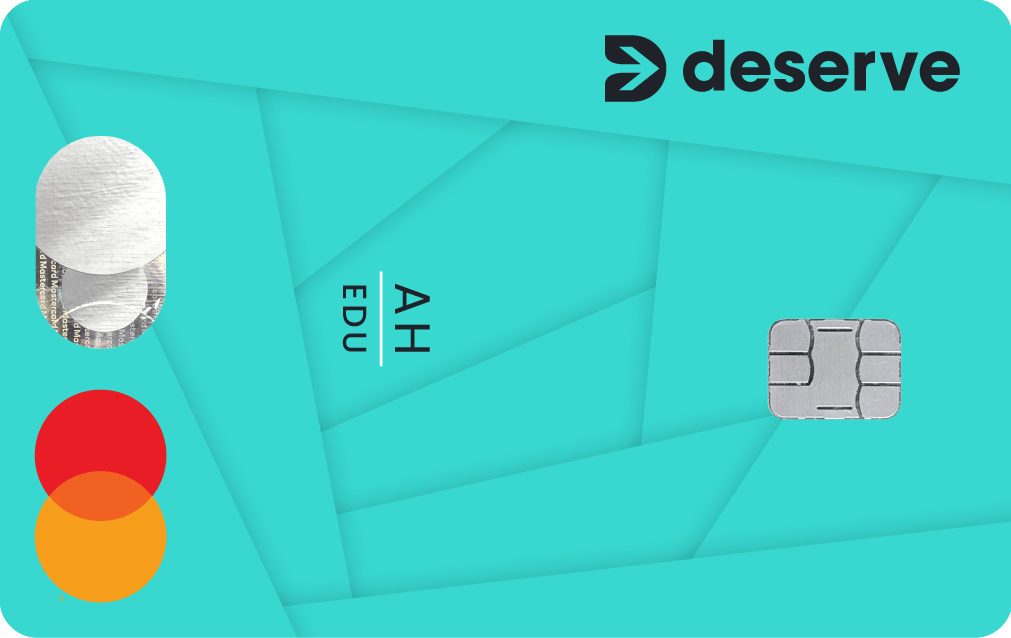
Compare Top Student Credit Card Offers
When you head off to college, you’ll likely be looking for your first credit card to help you manage your finances and start building your credit history. Student credit cards are a great starter card that can help you build your creditworthiness while earning small perks along the way.
Comparing student credit card offers is fast and easy:
Compare Best Credit Card Offers
Best Credit Cards for Students of April, 2025
Not sure which credit card is right for you?
No worries, we've got you covered! Compare multiple credit card options to choose the best card for your needs.
What is a student credit card?
A student credit card is a helpful tool designed to get you to start building credit. Like regular credit cards, you’ll need to make monthly repayments where you meet the minimum payments or you can also choose to pay your balance off in full. However, they come with lower credit limits and few bonuses and rewards.
Can a student credit card help build credit?
A student credit card can help you improve your credit rating when used responsibly. You’ll need to meet all payment obligations on time, as any missed payments can harm your credit score for years to come. Plus, it’s a good idea to keep your credit utilization ratio low, where you use less than 30% of your credit limit each month. This will have a positive impact on your credit score.
What are the benefits and disadvantages of a student credit card?
When it comes to managing your day-to-day finances, a student credit card can be a useful tool to pay for expenses while building your credit score. However, you’ll need to use your credit card responsibly because any misuse that results in lowering your credit score can prevent you from accessing other forms of credit.
Here are some of the pros of having a student credit card in college:
- Build your credit rating: Establishing a credit history is essential to renting a home, taking out a mortgage, buying insurance, getting approval for loans and credit cards. In addition, positive credit history can help you borrow at more competitive interest rates, potentially saving you thousands of dollars in the long run.
- Length of credit history: The length of your credit history is an important factor in calculating your credit score, and getting started early can help you build a stronger credit rating.
- Emergency expenses: When you’re a student, unexpected expenses can arise. This may be an unexpected illness, extra cost of books, or car repairs. A credit card can help you to cover emergency expenses.
- Learn financial responsibility: When you take out a credit card, you’ll need to ensure that you are making timely repayments and staying within the credit limit. Learning how to budget and manage your finances can help you to build a strong financial foundation for your future.
- Rewards: While student credit cards don’t have the best rewards on the market, some credit cards have cashback rewards and bonuses for purchases. Taking advantage of these rewards can help you to make small savings while you’re in college.
Here are some of the cons of why you should avoid a student credit card in college:
- Can lower your credit score: With bad financial habits, a student credit card can lower your credit score, especially if payments are missed or your credit card is maxed out month after month.
- High-interest rates: Student credit cards typically have high-interest rates. If you’re not paying off your full balance every month, interest payments can quickly spiral out of control. This can add to your college debt, limiting your finances.
- Difficult to make on-time repayments: When you’re studying full-time, working part-time, and have other in-school commitments, it can be easy to forget to make your payments on time. You may be charged late fees for missing payments; in addition, it can be harmful to your long-term credit score.
- Increase debt: If you’re unable to pay off your balance each month, having a student credit card can increase your debt while you're in college. Without careful budgeting, you could be left with a larger financial debt burden upon graduation and with high-interest charges, it can become stressful to pay off your debt.
How do I qualify for a student credit card?
Requirements to qualify for a student credit card are tighter today however it can be easier to get approval than other credit cards. If you have no credit history and no income, it can be difficult to be accepted. To qualify for a student credit card, you’ll need to meet some of the following criteria:
- Age: There is a minimum age of 18 years old. If you’re under 21, you will likely need a co-signer where your parent or guardian acts as a second borrower on your credit card application. If you don’t have a co-signer, you’ll need proof of income to show that you’ll be able to meet repayments. If you’re over 21, you’ll need to show proof of income.
- Credit score: Some student credit cards provide approval with limited or no credit history, however, there are likely to be income requirements.
- Annual income: With at least a part-time job, you can qualify for a student credit card. There’s no minimum income requirement, although if your income is low, you may find it easier to obtain approval with a co-signer.
- Citizenship: You’ll need to be a U.S. citizen or resident and have a social security number.
What are the best credit cards for students?
When shopping around for a student credit card, it’s important to compare the credit rating required, any fees imposed, the interest rate, and whether there are any rewards or perks. Here are some student credit cards for you to consider:
- Capital One SavorOne Student Cash Rewards Credit Card: With 3% cashback on dining and entertainment, there’s no annual fee and you’ll be covered for fraud liability if your card is ever lost or stolen.
- Chase Freedom Student credit card: With a $50 bonus after the first purchase and no annual fee, you’ll also receive 1% cashback on all purchases.
- Capital One Quicksilver Student Cash Rewards Credit Card: There’s no annual fee and no foreign transaction fees. You can build your credit score responsibly while earning 1.5% cashback on all purchases.
- Journey Student Rewards from Capital One: Offering 1% cashback on all purchases, and if you pay on time, you can boost your cashback to 1.25%. There’s no annual fee, no foreign transaction fees, and you can pick a monthly due date that is convenient for you.
- Deserve EDU: With no annual fee, there is a late payment fee of $25, although the first late payment fee is waived. You can earn 1% cashback on all your purchases and receive cell phone protection up to $600.
What happens if I am rejected for a student credit card?
If you send your student credit card application and are not approved, the first step is to find out why you were rejected. Common reasons for being denied student credit cards are poor or insufficient credit history, low income, too many credit inquiries, or insufficient proof of enrollment at your college.
It’s important to review the notice you receive upon denial, called an adverse action notice. This letter will explain why your application was not approved which you can use to improve your future application. For instance, if your income is too low, you can look to find ways to increase your income before your next application.
Can a student credit card be used to pay off student loans?
If you’re struggling to afford your loans, it’s a good idea to reach out to your student loan provider and ask for forbearance options. Credit cards generally cannot be used to make student loan payments and if they do, the interest charges are likely to be higher on your credit card than on your student loan which can lead to higher costs of financing your loan over time.
In addition, it’s important to keep an eye on your credit score. If you’re using a high percentage of your credit limit on your credit card, this can impact your credit utilization ratio, which can hurt your credit rating.
Can a student credit card be used after graduation?
With responsible use, you could be eligible to upgrade your student credit card to a card that offers more benefits, rewards, and a lower interest rate. Some card issuers will do this automatically, and for others, you can call up and ask. If you choose not to upgrade, you can continue to use your current card.
How to get a student credit card
When shopping around for your student credit card, it’s important to set yourself a budget, evaluate your finances and set yourself up to manage your credit card responsibly. Due to the high-interest charges on student credit cards, it’s best to pay off your balances in full each month.
It’s a good idea to compare the rewards and perks offered, the interest charges, and annual fees to find the best student credit card for your financial needs.
Quick links

What Type of Credit Card Do You Need?
Find Best Credit Card Offers
Credit Cards By Category
0% APR Credit Cards
Airline Credit Cards
Balance Transfer Credit Cards
Business Credit Cards
Cash Back Credit Cards
Hotel Credit Cards
Low Interest Credit Cards
No Annual Fee Credit Cards
Prepaid Credit Cards
Rewards Credit Cards
Secured Credit Cards
Student Credit Cards
Travel Credit Cards
Credit Card Issuers
Capital One®
Chase®
Citi®
Credit One Bank®
Mastercard®
Visa®
ADVERTISER DISCLOSURE: PashaFunding.com operates as an independent credit card comparison/review website. We want to be transparent with our users and disclose that we may receive compensation from various card issuers when users acquire credit cards through our site. This compensation may impact the placement and display of products on our site, including their order within listing categories.
EDITORIAL DISCLOSURE: The content and reviews on PashaFunding.com are prepared by our in-house staff. We strive to provide accurate and up-to-date information, but we cannot guarantee the reliability of all credit card details. To review the specific terms and conditions for a particular credit card, please click on the "Compare Credit Cards" links, which will redirect you to the card issuer's website. It is important to carefully review all the information provided by the issuer before making any decisions.

